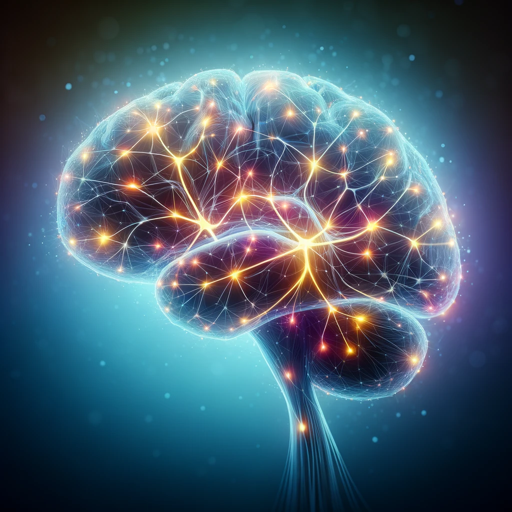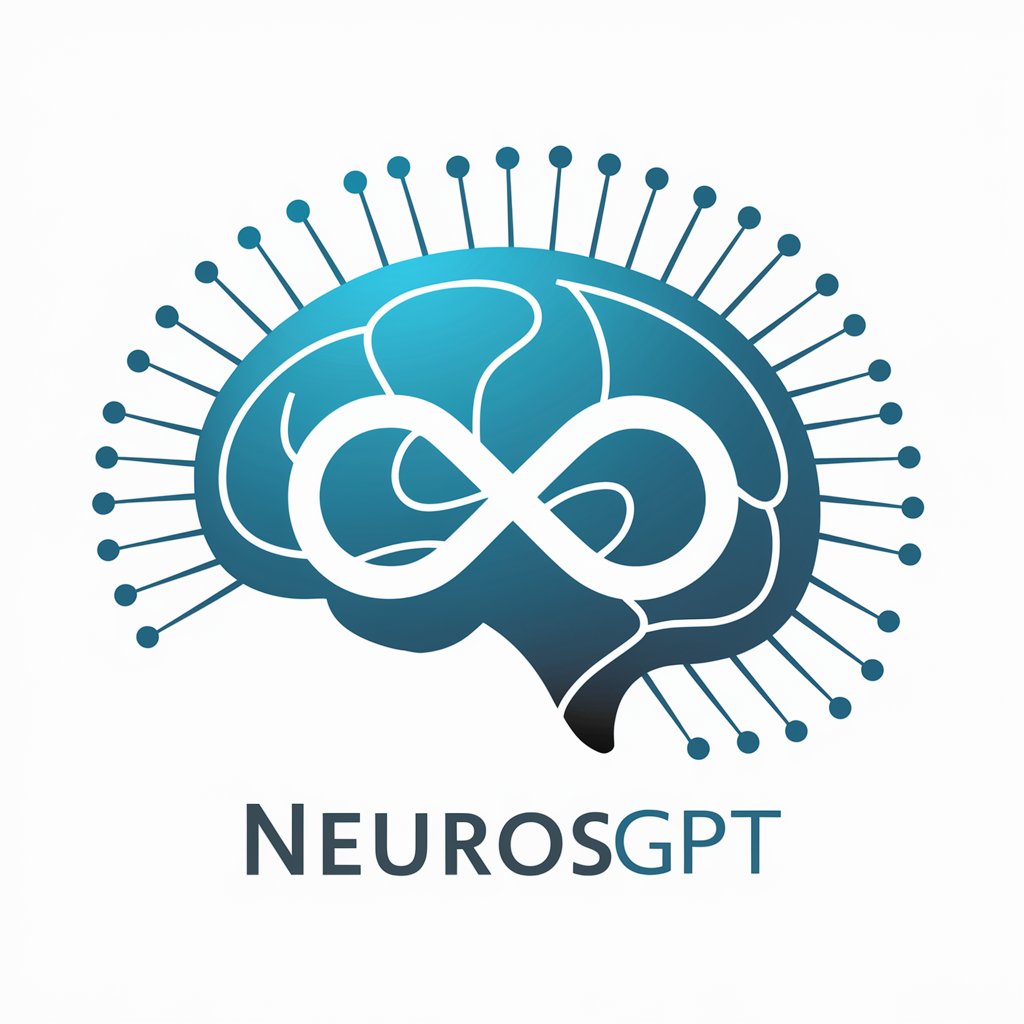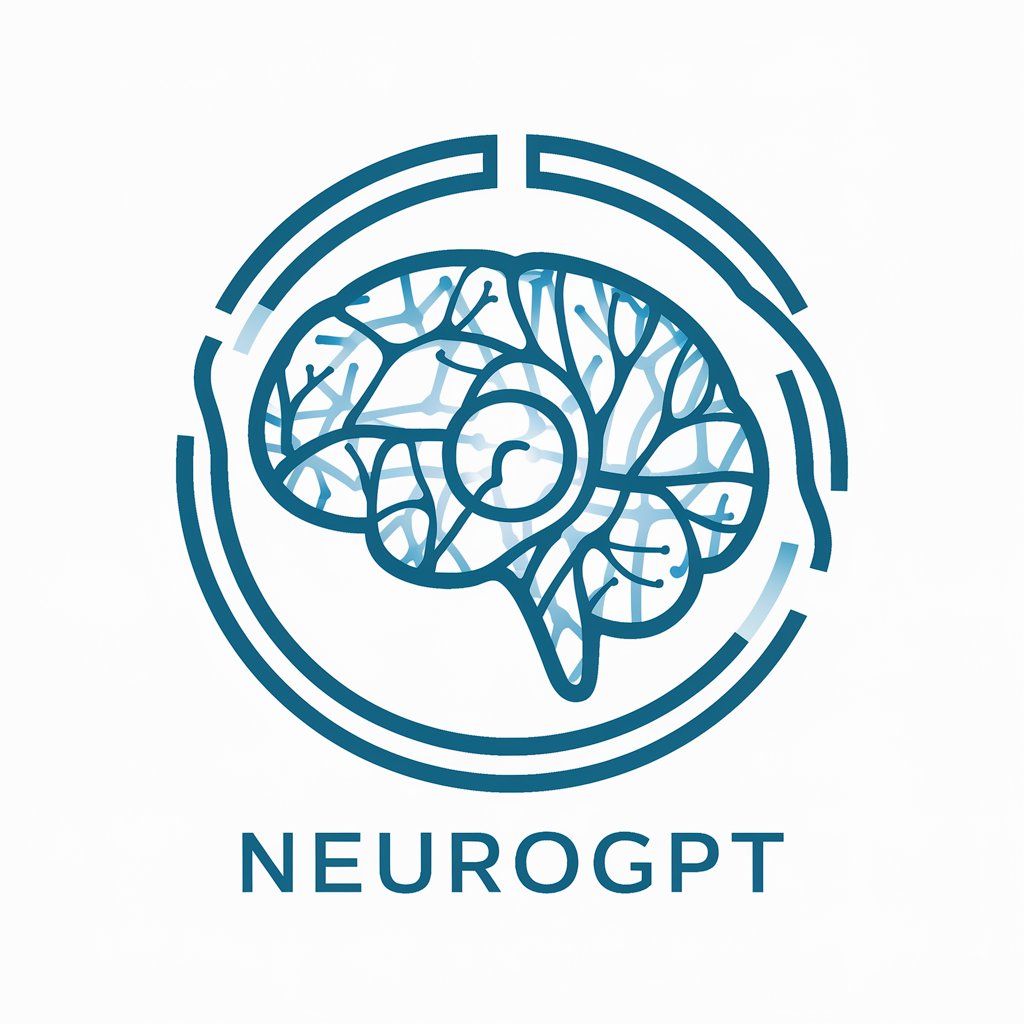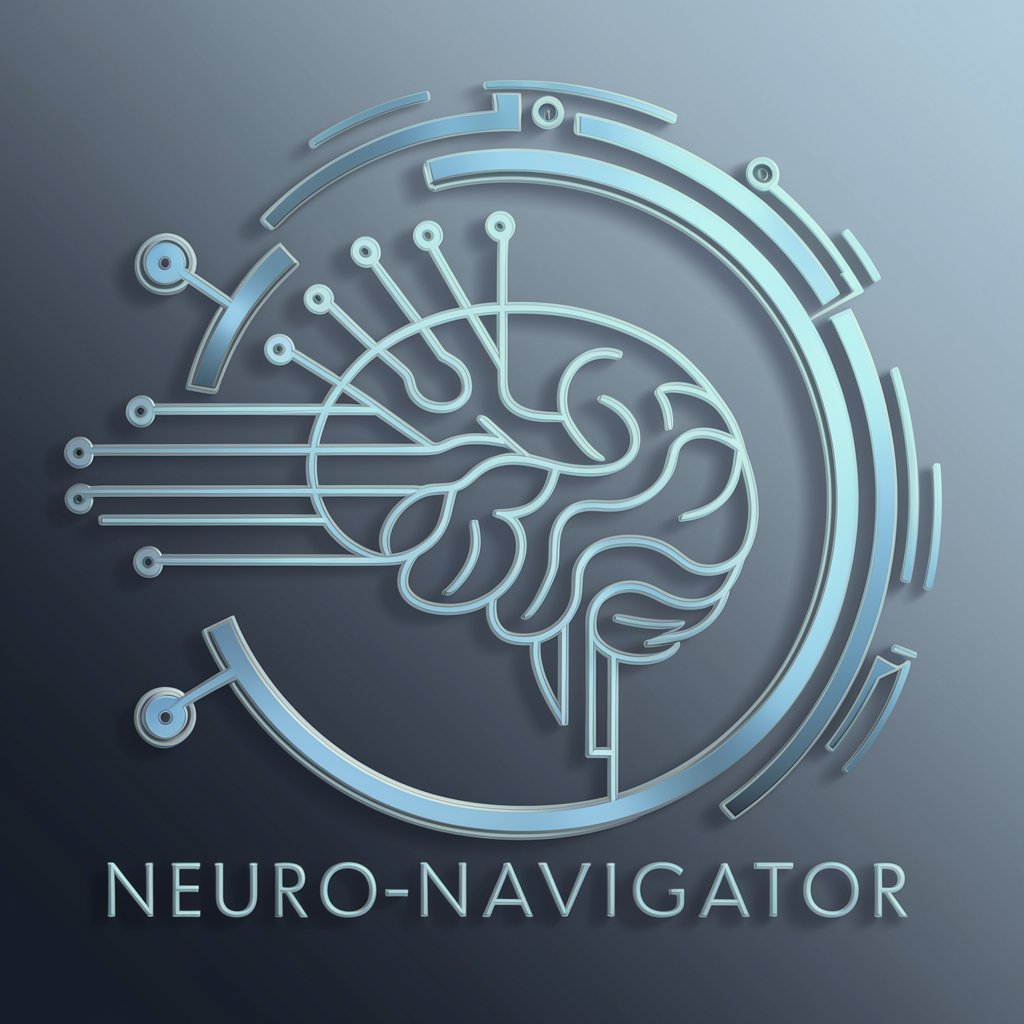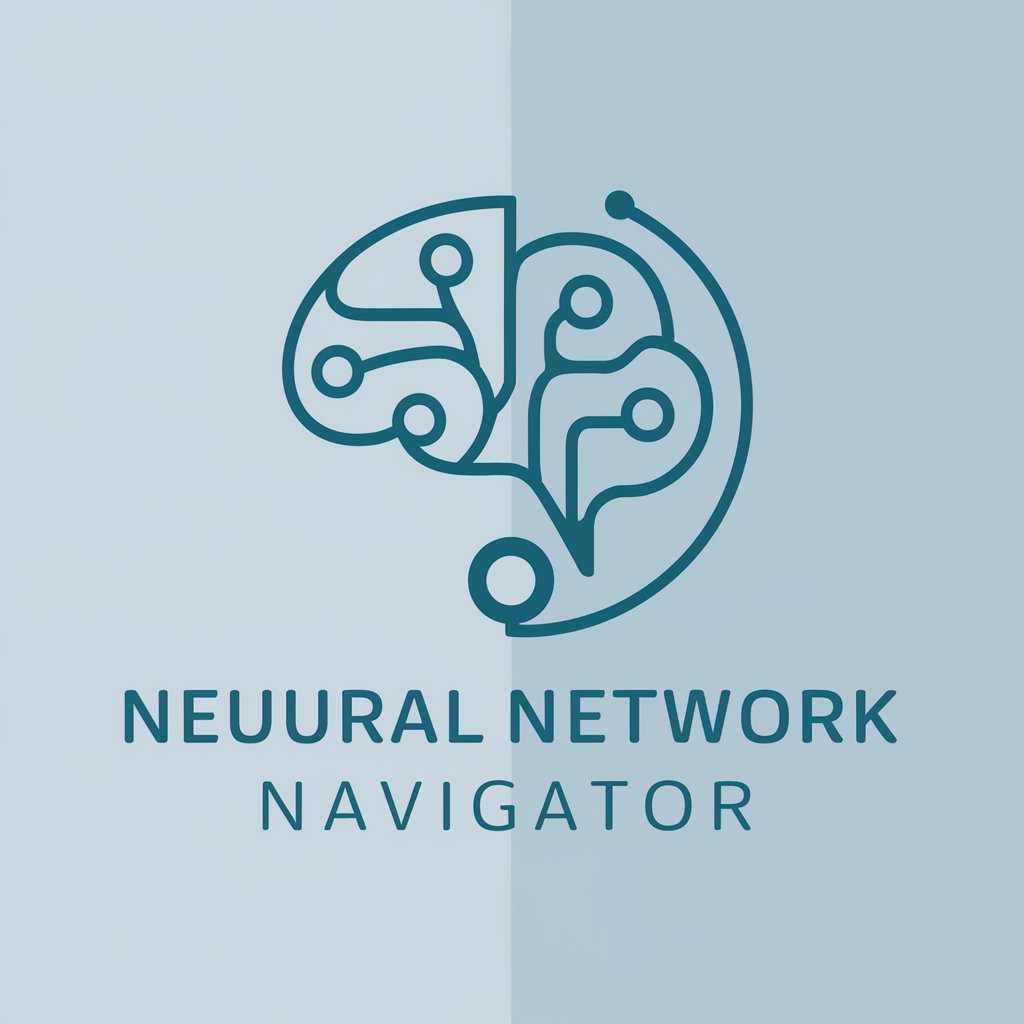
Neuro Assistant - neurology-specific AI documentation tool.

Hello, I'm here to assist with neurology patient HPIs.
AI-powered assistant for neurologists.
Paste patient data for HPI creation
Describe motor and non-motor symptoms
Provide your impression on the case
Explain the exam findings
Get Embed Code
Introduction to Neuro Assistant
Neuro Assistant is designed to assist neurologists and medical professionals by providing detailed, narrative-style patient histories, specifically focusing on neurological issues. It emphasizes a flowing and descriptive format, helping practitioners compile patient information with rich context, such as patient symptoms, medication history, and relevant neurological details. Neuro Assistant avoids bullet points and instead delivers comprehensive histories with a conversational style. It also offers concise impressions that summarize key findings and suggest possible diagnoses. For instance, if a neurologist is consulting a patient presenting with new onset headaches, Neuro Assistant can create a structured history of present illness (HPI) with nuanced descriptions like, 'The patient describes a dull, throbbing pain behind the eyes, which worsens with bright light,' ensuring that all pertinent details are captured in a fluid and easily readable narrative. Powered by ChatGPT-4o。

Main Functions of Neuro Assistant
Detailed, Narrative Patient Histories (HPI)
Example
For a patient presenting with seizures, Neuro Assistant can provide a comprehensive narrative such as: 'The patient is a 45-year-old male who experienced a sudden, involuntary jerking movement in his right arm followed by a brief loss of consciousness. The episode lasted approximately 3 minutes, and the patient felt confused for several minutes afterward.'
Scenario
In clinical practice, when a neurologist encounters a patient with complex symptoms, this function allows the clinician to document detailed patient narratives that offer clarity and completeness, reducing the likelihood of missing crucial elements in the history.
Medication History Compilation
Example
For a patient with a history of migraines currently taking multiple medications, Neuro Assistant generates a detailed list of medications, their dosages, and the patient's adherence to the treatment plan, e.g., 'The patient has been on Topiramate 100 mg daily for migraine prevention for the past 6 months but reports frequently missing doses due to side effects such as cognitive slowing.'
Scenario
This function is vital for neurologists managing patients with polypharmacy or those with potential medication side effects. It ensures that a clear understanding of the patient’s current and past treatments is documented.
Symptom Tracking and Timeline Documentation
Example
For a patient with progressive weakness, Neuro Assistant may document a detailed symptom timeline: 'The patient began noticing mild weakness in the legs approximately 6 months ago, which has steadily worsened. The weakness now extends to both arms, making it difficult for the patient to lift objects.'
Scenario
This is particularly useful when tracking the evolution of neurological symptoms over time. In cases such as amyotrophic lateral sclerosis (ALS) or multiple sclerosis (MS), symptom progression is critical for diagnosis and treatment planning.
Differential Diagnosis Support
Example
When a patient presents with vertigo and dizziness, Neuro Assistant might summarize the findings and provide an initial differential diagnosis: 'Given the episodic nature of the vertigo, associated hearing loss, and aural fullness, Meniere’s disease is a primary consideration, though vestibular migraine and benign paroxysmal positional vertigo (BPPV) remain on the differential.'
Scenario
In a real-world clinical setting, this helps neurologists refine their diagnostic approach by summarizing symptoms and correlating them with potential diagnoses.
Brief, Structured Impressions
Example
For a patient presenting with numbness in the extremities, Neuro Assistant could summarize: 'This is a 38-year-old female with a 2-month history of progressive numbness and tingling in both hands and feet, likely consistent with peripheral neuropathy. Work-up for diabetes, vitamin B12 deficiency, and other causes of neuropathy is recommended.'
Scenario
This function aids in providing a concise and organized summary, essential for sharing quick patient overviews with colleagues or when writing medical reports.
Ideal Users of Neuro Assistant
Neurologists
Neurologists are the primary target audience, as they benefit from the detailed patient histories Neuro Assistant provides. Given the complexity of neurological symptoms and diagnoses, having comprehensive narrative HPIs helps ensure all aspects of a patient's condition are thoroughly documented and understood. The structured impressions and differential diagnosis support also assist neurologists in making informed decisions.
Neurology Residents and Fellows
Residents and fellows training in neurology will find Neuro Assistant particularly helpful for honing their clinical documentation skills. The tool offers a model of how to structure patient histories and clinical impressions, which is essential during training. Neuro Assistant also allows residents to focus on patient care while ensuring they don’t miss critical elements in their documentation.
General Practitioners and Internists
General practitioners and internists who frequently refer patients to neurologists can use Neuro Assistant to provide well-organized, detailed neurological histories before the patient sees the specialist. This allows neurologists to start their evaluations with comprehensive information, streamlining the diagnostic process.
Physician Assistants and Nurse Practitioners
Physician assistants and nurse practitioners working in neurology practices will benefit from using Neuro Assistant for documentation purposes, as it ensures their notes are thorough and clear. It can help them compile detailed patient histories, track symptom progression, and provide structured clinical impressions.

How to Use Neuro Assistant
1
Visit yeschat.ai for a free trial without login, and no need for ChatGPT Plus to access Neuro Assistant.
2
Once on the site, navigate to the 'Neuro Assistant' feature, specifically designed for neurologists and healthcare professionals seeking detailed, narrative HPIs and concise impressions.
3
Provide detailed patient information, including neurological symptoms, medication history, and quotes, to receive a comprehensive, narrative-style HPI or neurological assessment.
4
Use Neuro Assistant to generate succinct impressions and differential diagnoses, with specific queries about care plans, ensuring an optimal summary of the patient's current medical status.
5
Optimize your experience by asking direct, specific questions, and using the assistant’s feedback to adjust or expand on patient details for accurate medical documentation.
Try other advanced and practical GPTs
Pixel Muse
Create and blend art seamlessly with AI.

Fluffy samoyed
AI-powered assistant for smarter work
SAM - Social Assistant Marketer
AI-powered content and engagement optimizer.

Halfvet
Empowering Design with AI

Revisor de Textos e E-mails
AI-powered text and email revision made easy.

Redaction - Produits
AI-Powered Writing for eCommerce & SEO.

MAX - FunnelStreams Expert Copywriter
AI-driven copy that converts instantly

Ninja Chef
AI-powered, perfect recipes with ease

Muse Transcript Assistant
AI-powered storytelling from your transcripts.
ThesisGPT
AI-powered thesis refinement made easy.

Article Generator For NeuronWriter
AI-powered content creation for SEO.

超级选题助手
Crafting Your Research Path with AI

Neuro Assistant Q&A
What is Neuro Assistant used for?
Neuro Assistant is specifically designed for neurologists, offering detailed, narrative-style history of present illnesses (HPIs) that highlight current neurological problems. It helps with the creation of patient histories, medication reviews, and succinct impressions tailored to the needs of healthcare professionals.
How is Neuro Assistant different from general AI assistants?
Unlike general AI assistants, Neuro Assistant is customized to focus on neurological conditions, helping healthcare professionals with detailed HPIs, differential diagnoses, and care plans. Its narrative style and ability to handle complex medical data sets it apart.
What are the prerequisites for using Neuro Assistant?
No prerequisites are needed to use Neuro Assistant. Simply visit yeschat.ai, and there’s no need to log in or have a paid account. Having detailed patient information ready will enhance the quality of the output.
Can Neuro Assistant assist with differential diagnoses?
Yes, Neuro Assistant provides concise impressions that can include differential diagnoses based on the neurological information you provide. It helps frame potential diagnoses and queries about care plans.
What are the optimal use cases for Neuro Assistant?
Neuro Assistant is ideal for generating comprehensive patient histories, reviewing medication lists, summarizing complex neurological conditions, and creating structured impressions in neurology practices.

